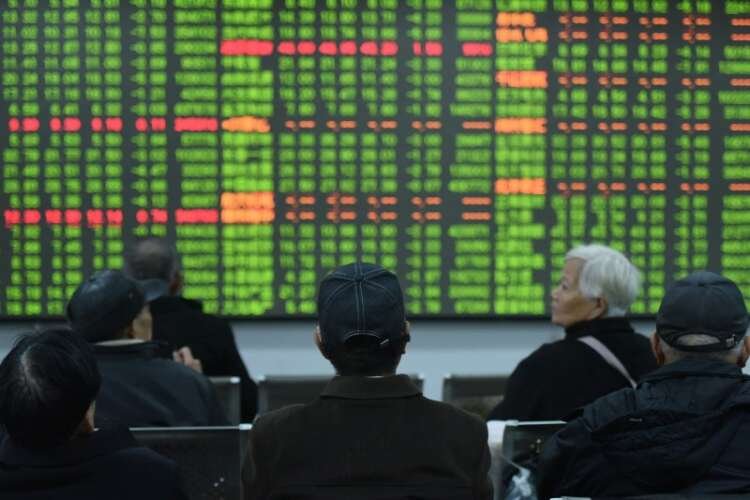China investors turn to renewables, chips, to avoid regulators’ attention
Published by maria gbaf
Posted on August 12, 2021
5 min readLast updated: January 21, 2026

Published by maria gbaf
Posted on August 12, 2021
5 min readLast updated: January 21, 2026

HONG KONG (Reuters) – Investors in China are turning to semiconductors, renewable energy and consumer-focused firms in the belief they offer safe-harbour from a blizzard of regulatory action that has battered confidence and forced funds to overhaul their portfolios.
Money managers view months of crackdowns that have hammered shares in sectors from tutoring to big tech as part of a major push from China’s Communist Party leadership to pursue common prosperity at the expense of private-sector profit.
Yet as selling has wiped billions from the value of companies in the crosshairs, such as online giants Tencent and Alibaba, share prices of firms seen on the right side of reform have surged.
Since June, for example, China indexes of clean energy stocks and semiconductor firms are up more than 30% compared with a 5% fall in the broader market and a 15% drop in Hong Kong tech shares.
“The buying has come from all kind of investors,” said Credit Suisse senior investment strategist Suresh Tantia.
“Foreign investors’ mutual funds, they still need to allocate their money in China due to their mandates so they are now wanting to invest in line with where the government is delivering support,” he said.
Investors sifting state media and President Xi Jinping’s speeches and books for policy clues saw one standout focus on reducing greenhouse gas emissions – with broad goals for peak carbon emissions in 2030 and carbon neutrality by 2060.
Similar broad goals for driving domestic demand and home-grown production have put support under mainland-listed consumer discretionary firms and industrials.
“There’s (electric vehicles), renewables, semiconductors from a self sufficiency stand point … we look at these sectors and see that they could well keep on receiving support,” said Alex Wolf, head of investment strategy at JP Morgan Private Bank.
“Another one is upgrading manufacturing,” he said. “China is very keen, and they have said it in the five-year plan, to maintain manufacturing as a certain share of the economy …(and) if anything increasing it.”
Like portfolio managers at Citi Private Bank and BNP Paribas Wealth Management, Wolf favours mainland listings as less exposed to regulatory scrutiny and because the composition of the market tilts away from targets like tech or internet firms.
Morgan Stanley chief Asia economist Chetan Ahya said in a note last week; “Our equity strategists (believe that) over time, the MSCI China universe will gradually have a more balanced sector allocation with a reduced weight for internet and a higher weight for sectors like industrials and IT.”
(Reporting by Scott Murdoch in Hong Kong. Additional reporting by Samuel Shen and Luoyan Liu in Shanghai. Writing by Tom Westbrook; Editing by Simon Cameron-Moore)
HONG KONG (Reuters) – Investors in China are turning to semiconductors, renewable energy and consumer-focused firms in the belief they offer safe-harbour from a blizzard of regulatory action that has battered confidence and forced funds to overhaul their portfolios.
Money managers view months of crackdowns that have hammered shares in sectors from tutoring to big tech as part of a major push from China’s Communist Party leadership to pursue common prosperity at the expense of private-sector profit.
Yet as selling has wiped billions from the value of companies in the crosshairs, such as online giants Tencent and Alibaba, share prices of firms seen on the right side of reform have surged.
Since June, for example, China indexes of clean energy stocks and semiconductor firms are up more than 30% compared with a 5% fall in the broader market and a 15% drop in Hong Kong tech shares.
“The buying has come from all kind of investors,” said Credit Suisse senior investment strategist Suresh Tantia.
“Foreign investors’ mutual funds, they still need to allocate their money in China due to their mandates so they are now wanting to invest in line with where the government is delivering support,” he said.
Investors sifting state media and President Xi Jinping’s speeches and books for policy clues saw one standout focus on reducing greenhouse gas emissions – with broad goals for peak carbon emissions in 2030 and carbon neutrality by 2060.
Similar broad goals for driving domestic demand and home-grown production have put support under mainland-listed consumer discretionary firms and industrials.
“There’s (electric vehicles), renewables, semiconductors from a self sufficiency stand point … we look at these sectors and see that they could well keep on receiving support,” said Alex Wolf, head of investment strategy at JP Morgan Private Bank.
“Another one is upgrading manufacturing,” he said. “China is very keen, and they have said it in the five-year plan, to maintain manufacturing as a certain share of the economy …(and) if anything increasing it.”
Like portfolio managers at Citi Private Bank and BNP Paribas Wealth Management, Wolf favours mainland listings as less exposed to regulatory scrutiny and because the composition of the market tilts away from targets like tech or internet firms.
Morgan Stanley chief Asia economist Chetan Ahya said in a note last week; “Our equity strategists (believe that) over time, the MSCI China universe will gradually have a more balanced sector allocation with a reduced weight for internet and a higher weight for sectors like industrials and IT.”
(Reporting by Scott Murdoch in Hong Kong. Additional reporting by Samuel Shen and Luoyan Liu in Shanghai. Writing by Tom Westbrook; Editing by Simon Cameron-Moore)
Explore more articles in the Investing category











